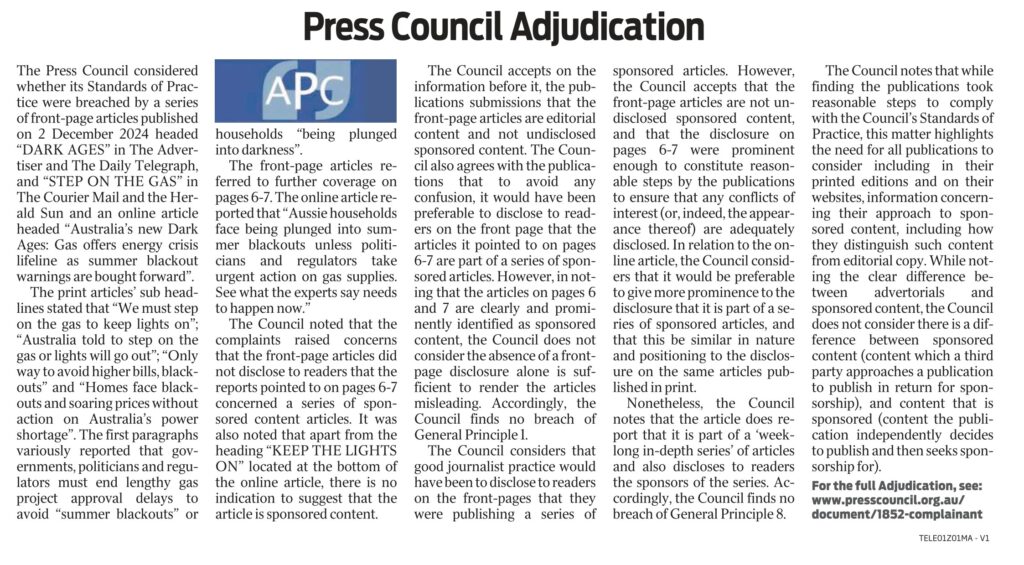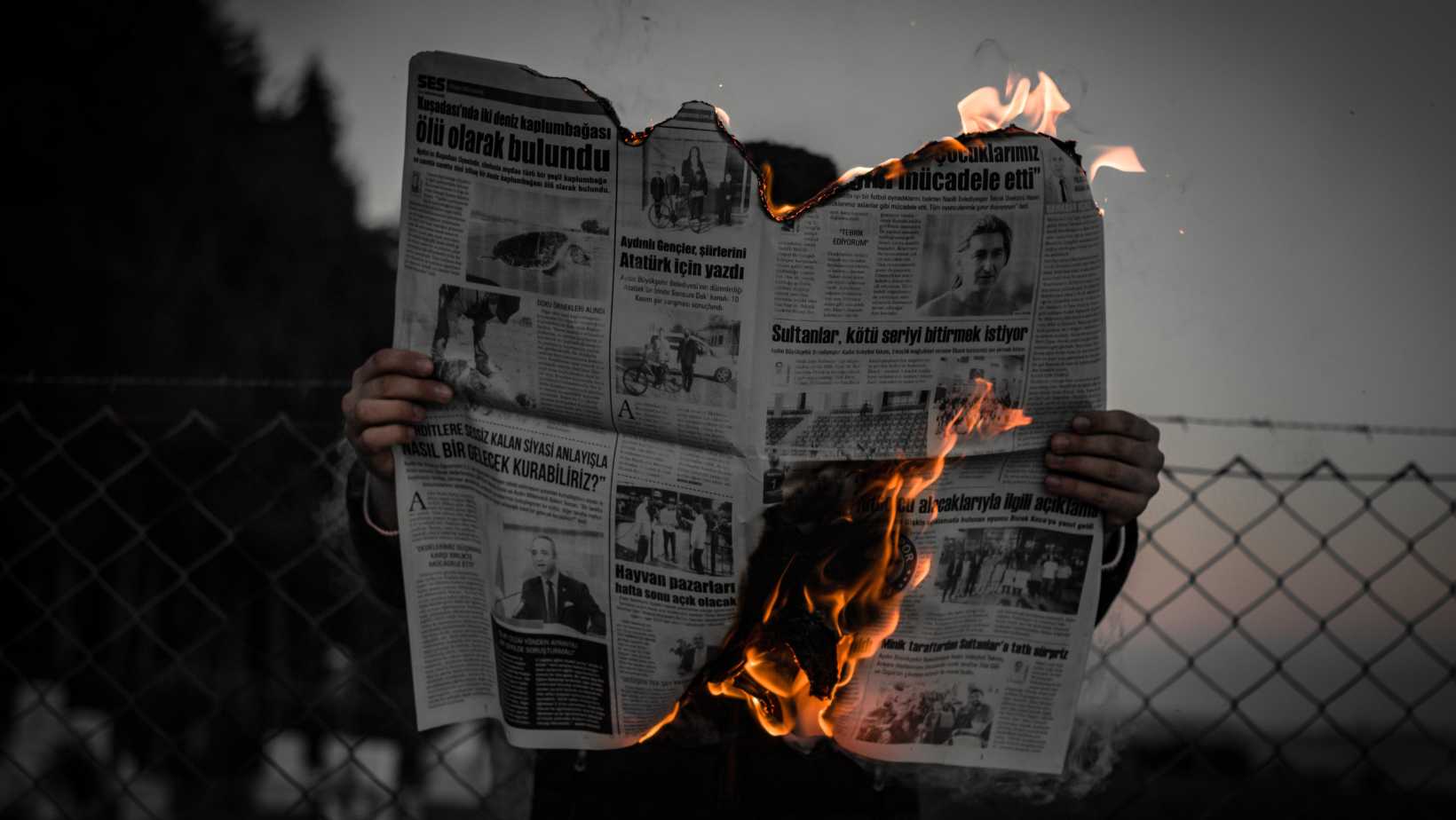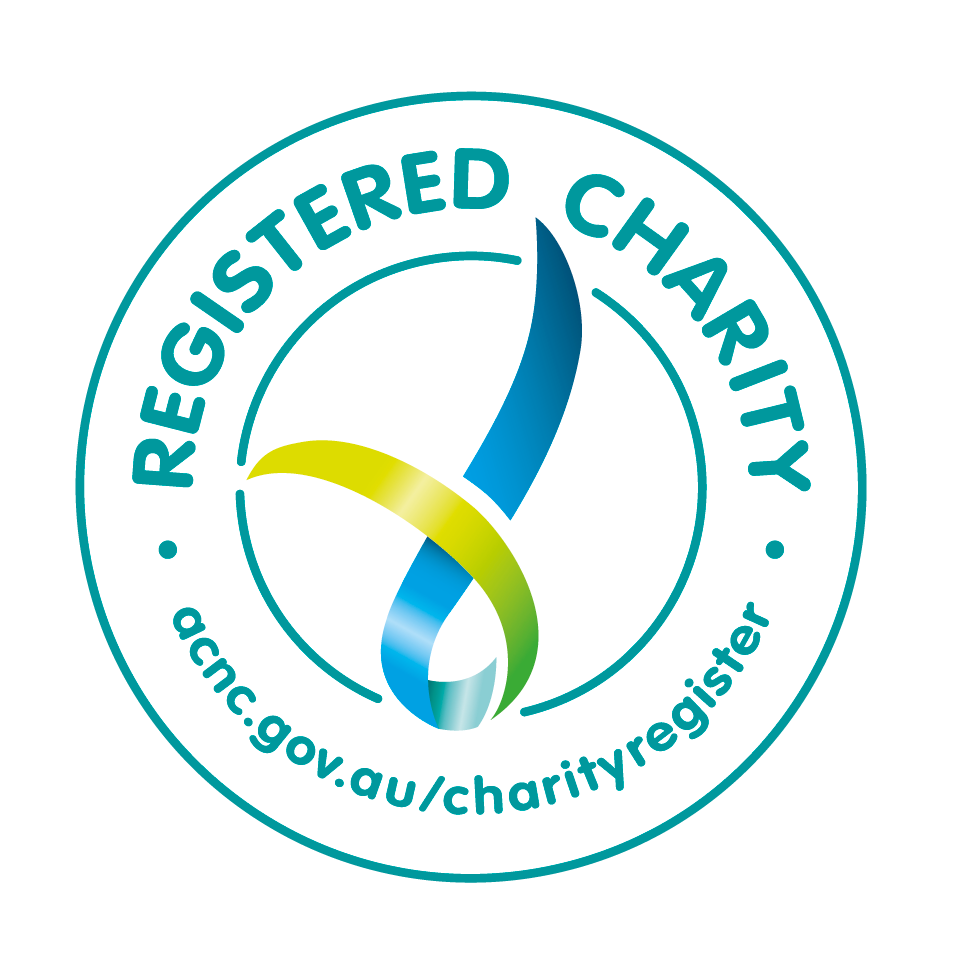A complaint lodged by Comms Declare over a series of front-page newspaper stories promoting the gas industry has been dismissed by the Australian Press Council, despite the lack of transparency regarding sponsored content.
The controversy began with the Daily Telegraph’s December 2, 2024, front-page article titled “Dark Ages: Australia told to step on the gas or lights will go out.” The accompanying subheadline warned of blackouts and higher power bills without urgent government action on “gas shortages”. The story referred readers to coverage on pages 6-7, which turned out to be part of a series sponsored by gas industry corporations. However, the front page carried no indication that the stories were paid content.
Comms Declare argued this omission breached Press Council guidelines, which state that advertorials and sponsored features should be clearly labeled as such to prevent misleading readers. They noted that the language on the front page – including the term “coverage” – suggested standard editorial reporting rather than commercially influenced material.
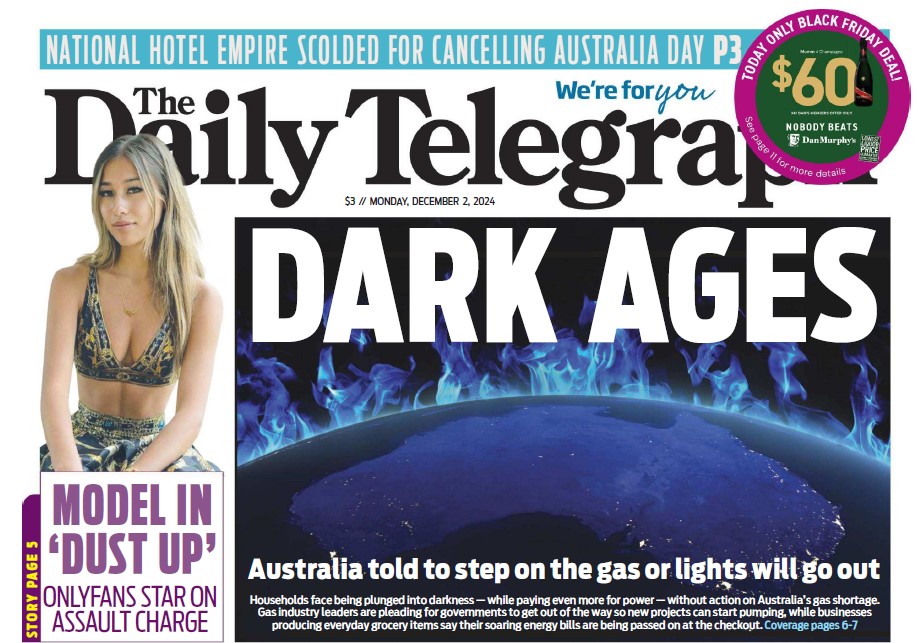
The Press Council reviewed front pages from multiple News Corp publications — including The Advertiser, Herald Sun, and Courier Mail — all part of a coordinated campaign under similar headlines, and also examined an online article in the same series.
While the Council found it would have been “preferable” to disclose sponsorship on the front page, it ultimately ruled that there was no breach of its standards. It accepted News Corp’s claim that the front-page content was independently written and that the sponsored nature of the extended reports was clearly marked on the inside pages.
“There was no evidence the sponsors had editorial control,” the Council said in its adjudication. “The disclosures on pages 6 and 7 were prominent enough to meet standards of transparency.”
The Council also noted that while the online version included a disclosure box, it would benefit from more visible placement similar to the print edition.
The ruling underscores ongoing concerns about the blurring lines between journalism and paid content. The Press Council called on publications to improve the clarity of how sponsored material is presented, stressing the importance of maintaining editorial independence and public trust.
The incident highlights the growing complexity in media funding models — and the vital need for transparency in distinguishing commercial influence from independent journalism.
